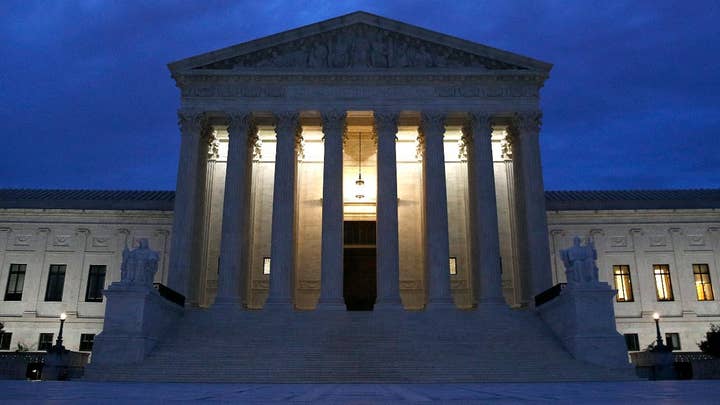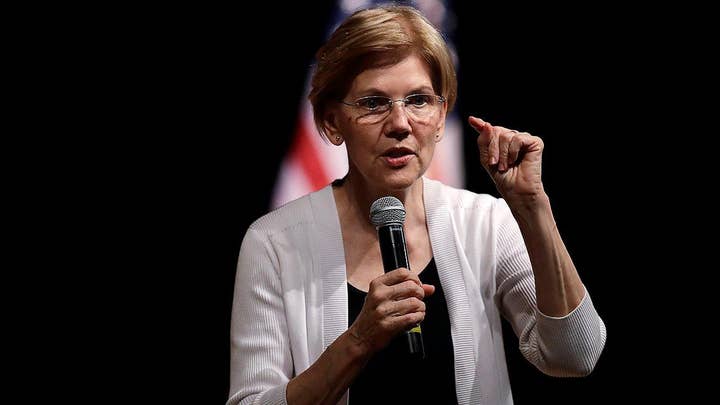Sen. Kamala Harris compares ICE to Ku Klux Klan
Former ICE director Tom Homan and Fox News contributor Tammy Bruce react to Sen. Harris' statements.
Presumptive 2020 Democratic presidential candidates currently in Congress are unsure whether to support President Trump-backed criminal justice reform, even as progressive groups endorse it.
For Democrats the question is whether the White House should be getting credit on an issue that until very recently was part of the Democratic platform.
The First Step Act, which would still need to pass the Senate, would overhaul the country’s criminal justice sentencing for the first time in a generation and support rehabilitation efforts for federal prisoners. It also would allow judges to exercise more discretion when sentencing nonviolent offenders, particularly for drug offenses
Prison reform groups particularly welcome the bill because it would reform the federal "three strikes" rule that mandates a life sentence for three or more convictions. Under the new legislation, the convictions would trigger a 25-year sentence instead.
But U.S. Sens. Kamala Harris, D-Calif., and Elizabeth Warren, D-Mass., are unsure they will give their nod to the bill when it comes time to vote.
Harris, who recently said she will make her decision whether to run in 2020 during the upcoming holiday season, said she’s still considering whether to support the bill.
She told the Hill that she’s balancing the “ideal” against not letting “perfect be the enemy of the good.”
"Make no mistake: the FIRST STEP Act is not meaningful criminal justice reform, and would be a step backward from our shared goal of ending America’s mass incarceration crisis."
She also signed off on a joint statement in May, saying “Make no mistake: the FIRST STEP Act is not meaningful criminal justice reform, and would be a step backward from our shared goal of ending America’s mass incarceration crisis.”
The statement was also co-signed by another likely 2020 presidential candidate, U.S. Sen. Cory Booker, D-N.J. Last month, he released a statement saying he supports it due to the changes made in the Senate’s version of the bill.
Warren, meanwhile, said she’s also unsure about supporting the legislation, indicating that her opposition is due to the bill not going far enough.
“We’re still looking at the details. Overall, it’s not nearly as comprehensive as we need but it appears to be an important first step,” she said, according to the Hill. “I’ve heard from groups who are pleased that there has been some effort made and other groups that are sharply disappointed they can’t do more.”
Among the supporters of the bill are the American Civil Liberties Union (ACLU), the Sentencing Project, and #cut50, an organization founded by Van Jones, who worked with the Trump administration on the proposal.
Despite that, other Democrats are wary of supporting the bill after Senate Democratic Whip Dick Durbin made a few concessions in an effort to appease Republicans who were on the fence.
“We’re trying to figure out how to expand that list,” Durbin told the Hill, pointing out that crimes involving pornography and sexual predation are excluded from leniency that the bill would allow.
“There are some areas in criminal sentencing that are very important to me and I’ve made three substantial concessions in that area and I’m not going further,” he said.
Other likely 2020 presidential candidates like Sens. Bernie Sanders, Sherrod Brown, and Jeff Merkley are reportedly satisfied with the bill and will support it.
“All of us would like to see it go further but this is a step in the right direction,” Merkley told the outlet on Tuesday.
















































